China : A Global Challenge
China"s neighbours are concerned about its expanding military power, and they frequently accuse it of engaging in unfair trade practices with its economic policies. Additionally, China supports assertive military actions in the South China Sea in support of territorial claims, which has strained its relations with practically all of its neighbours.
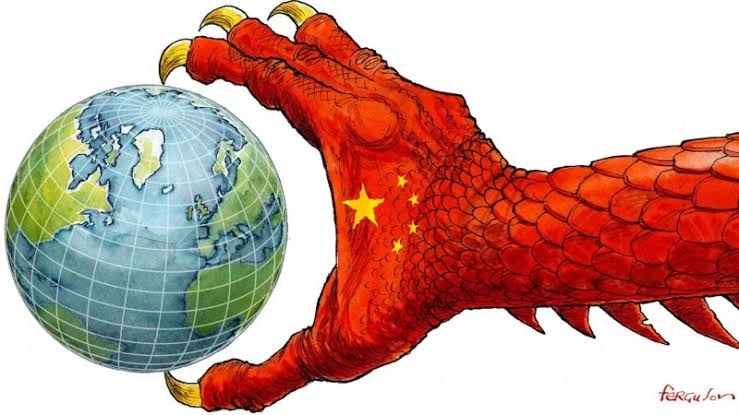
One of the most significant geopolitical trends of our time is China's ascent to global power. The nation's economic expansion has been unparalleled in human history, and both its political and military clout are expanding quickly. However, this quick expansion has presented the world with a fresh set of problems and challenges.
China's neighbours are concerned about its expanding military power, and they frequently accuse it of engaging in unfair trade practices with its economic policies. Additionally, China supports assertive military actions in the South China Sea in support of territorial claims, which has strained its relations with practically all of its neighbours.
But this is just the tip of the iceberg. China's genuine threats to the world are far more intricate and nuanced. In order to effectively counter China's dangers to the world, we must comprehend them step by step because they are far more complex and multifaceted than this.
We will Start our discussion with China’s Personal Favourite : Border Disputes
China has territorial conflicts with a number of its neighbours, including India, Japan, Vietnam, the Philippines, Brunei, Malaysia, Indonesia, Bhutan, Tibet and Taiwan.
It has been accused of being aggressive and expansionist in its approach to borders, which has in the past sparked tensions and even confrontations.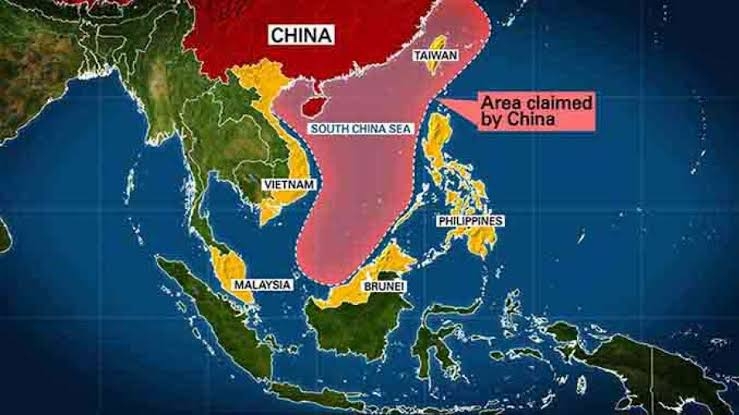
Although these Confrontations are clear violations of International Borders, China has constantly asserted that they are merely defending their territorial integrity and sovereignty. And given the attitude of China the disputes are likely to remain a source of stress in the area.
Three of the Major China initiated border disputes are discussed below. Dispute 01 : India
The border dispute between China and India has its roots from the colonial era. The most serious clash between the two countries occurred in 1962, when China invaded India.
Since then, the two countries have been engaged in a series of talks to resolve the border dispute, but no agreement has been reached.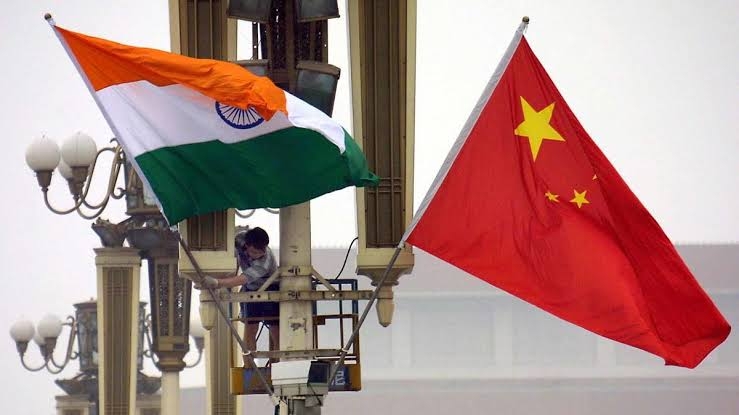
The India-China border dispute is broadly divided into 3 sectors : Eastern, Middle and Western.
Western Sector : The Western Sector is the longest of them all, at 2,152 kms. It lies between Jammu - Kashmir and Xinjiang. Aksai Chin is the disputed territory in this region.
Middle Sector : The Middle Sector is the shortest, at 625 kms. Here the border of Himachal Pradesh and Uttarakhand touches the border of the Chinese-occupied region of Tibet.
Eastern Sector : The Eastern Sector is the middle-length of them all, at 1,140 kms. It extends from the Talu Pass over the Trijunction of Tibet, India, and Myanmar to eastern Bhutan. The most Important area of conflict here is India`s Arunachal Pradesh.
India has taken a strong stance on the border disputes. The Indian government has said that it will not compromise on its territorial integrity and that it will defend its borders by all means necessary. But the constant push from China remains to be a challenge for India and for its neighbouring countries.
Dispute 02 : Japan
China and Japan have been unable to agree on the precise location of their borders, resulting in a number of armed clashes over the years. The most serious clash occurred on the disputed islands in 1969, when Chinese and Japanese troops clashed.
In Japan, the disputed islands are known as the Senkaku Islands, while in China, they are known as the Diaoyu Islands. The islands are uninhabited and devoid of natural resources, but they are strategically located in the East China Sea.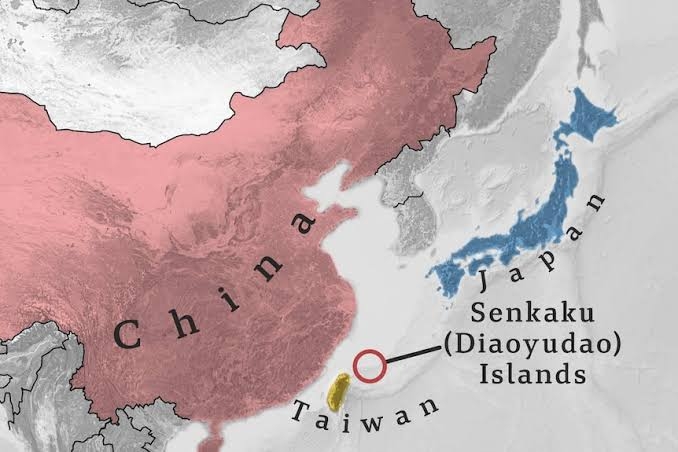
The Senkaku/Diaoyu Islands are considered an integral part of Japanese territory. There is no evidence that the islands were ever part of Chinese territory, despite the fact that they have been under Japanese control for over 150 years. Historians dispute the Chinese claim to the islands, which is based on historical records.
The Japanese government has stated numerous times that it is willing to settle the dispute peacefully through dialogue. China, on the other hand, has refused to engage in dialogue on the subject.
Dispute 03 : Taiwan
China considers Taiwan as a breakaway province. Whereas the people of Taiwan have their own government, their own military, and their own culture. They are a self-governing people, and they do not want to be ruled by China.
For Taiwanese people, the dispute is about sovereignty. China, on the other hand, has said that it will use force to unify Taiwan with the mainland if necessary.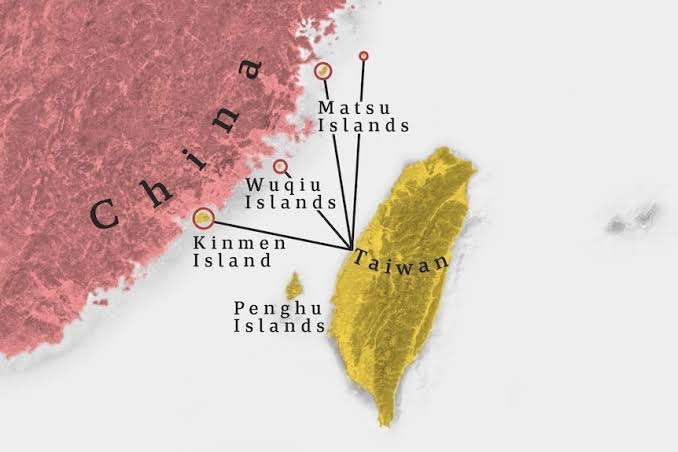
China has increased its pressure on Taiwan in recent years. It has increased military exercises near the island and passed legislation that allows China to use force against Taiwan more easily.
All of these conflicts highlight China's vision as a country. It wishes to broaden its borders and claim other`s lands as theirs. But China's invasion is not limited to Borders, another one of its favourite ways of entering a Country is Trade.
China's Trade Dominance :
The issue of China's trade dominance has both advantages and disadvantages. Although, China's exports have helped consumers by lowering prices and removing millions from poverty. But also, concerns have been raised about China's trade policies and the effects of its economic expansion on the world economy.
The Problem is - “China is not purely a partner, competitor, or challenger: it is all of them at once”
The analyses of Chinese trade policy usually tacitly assume that the country behaves as a single unified strategic actor. China has been accused of subsidising its exports, dumping goods on foreign markets, and engaging in intellectual property theft.
As the Economic powers of China increase it gives them an untold benefit over international institutions such as WTO and UN. China's trade policy is so aggressive that countries that trade with them are always in huge deficits.
Talking about deficits, China not only likes to put countries in trade deficits but also Debt Traps
China's Debt Traps :
China is distributing billions of dollars in the form of concessional loans to developing nations, mostly for their massive infrastructure projects, in an effort to quickly advance its political and economic dominance throughout the world. As these mostly low- or middle-income developing countries struggle to make the payments, Beijing has the opportunity to demand benefits or concessions in exchange for debt relief.
One of the closest examples of this debt trap diplomacy is our loving neighbour Pakistan, a country so deep down in the debt trap that they would need to sell their souls to repay the debt. Another really close example is of Sri Lanka, although they haven't sold their souls but Hambantota port is something they had to.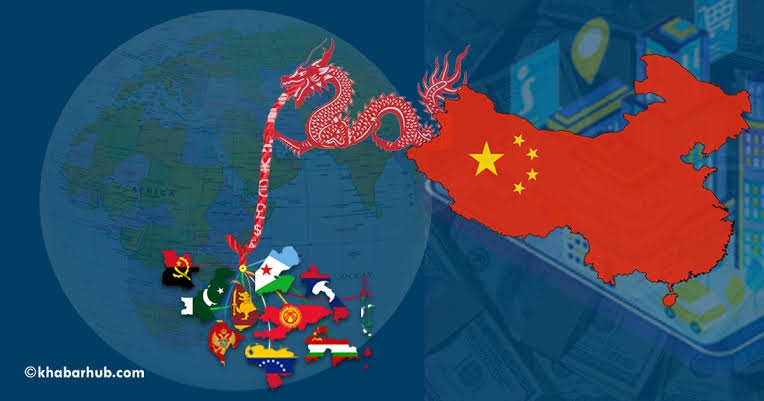
This gave China control over a crucial port that was right next to its regional rival India and a strategic foothold along a vital waterway for trade and military transportation.
But China is not limited to physical invasions, it has found its ways to enter our phones as well, through the Internet. As astounding as it sounds, China is a country which does not allow its citizens to access the free internet but loves accessing the data of people who are on the internet.
China's Cyber Threats :
China, a significant cyber power, has been charged with a variety of cyberattacks, including espionage, intellectual property theft, and the disruption of vital infrastructure.
Despite the Chinese government's denials of these charges, there is evidence to support some of these activities. For instance, the US Department of Justice filed criminal charges against five Chinese military officers in 2015 for allegedly hacking into American businesses and stealing trade secrets.

Global governments and companies are very concerned about China's cyber threats. They can weaken national security, disrupt vital infrastructure, and harm economies.
According to CISA (Cybersecurity and Infrastructure Security Agency), In order to further its national interests, the Chinese government, also known as the People's Republic of China (PRC), engages in malicious cyber activities.
Throughout the world healthcare, financial services, defence industrial base, energy, government facilities, communications, IT, international trade, education, video gaming, faith-based organisations, and law firms were all targeted by malicious cyber activities that have been linked to the Chinese government.
Furthermore, according to advisories released by CISA and other unclassified sources, China is conducting operations across the globe to steal sensitive information and intellectual property from critical infrastructure companies, including companies working in the pharmaceutical, healthcare, and research sectors on the COVID-19 response.
But with the Internet wide open, China doesn't stop here. Although stealing data is a power move from their side, an even bigger move they have played is feeding data. Data when stolen reveals about your character but data when fed builds up your character. China has had its time with physical invasions and is now moving towards mental invasions. With apps like TikTok having millions of people surfing over it everyday, even a small dose of propaganda is enough to penetrate into the minds of people.
There have been instances where it has clearly been shown how the content that is served on TikTok in countries other than China is based on mindless scrolling behaviour, whereas the content in China is either educational or patriotic.
China's web has become so extensive that it now affects the entire world. It has turned into a sweet poison that harms everyone it comes in contact with. It is crucial that the international community responds to the threat posed by China's growing assertiveness.
Coping with China :
The Quad has shifted its attention in recent years to reducing China's influence in the Indo-Pacific area. This is partly because of China's escalating military might and aggressive regional behaviour. For instance, China has constructed man-made islands in the South China Sea and has engaged in military drills close to Japan.
The Quad nations have been working more closely together militarily in recent years. This includes collaboration on exercises, intelligence sharing, and sales of weapons.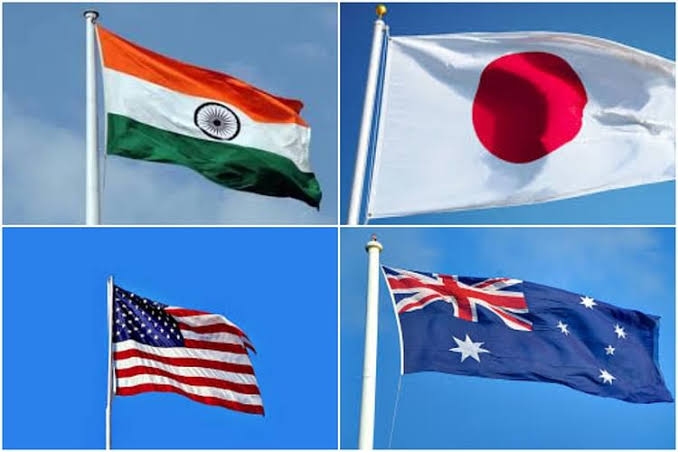
In terms of diplomacy, the Quad nations are attempting to improve their relations with nations in the Indo-Pacific area. This entails having ongoing discussions and cooperating on regional problems.
The Quad's efforts to limit China's influence are part of a broader trend of countries in the Indo-Pacific region seeking to balance China's growing power. This trend is likely to continue in the years to come.
Conclusion :
To handle China's ascent in a way that is peaceful and beneficial to all nations, the world must cooperate. Cooperation on topics like trade, climate change, and nuclear nonproliferation will be necessary for this. Additionally, it will necessitate that nations clearly define their red lines and be ready to retaliate if China crosses them.
It will be difficult and complex to control China's ascent. But if we want to build a more secure and prosperous world, we must take on this challenge.
And as mentioned earlier we should always remember, “China is not purely a partner, competitor, or challenger: it is all of them at once”. Jai Hind.
Article by

Chayan Sanghvi
Younginker
Indore, Madhyapradesh


